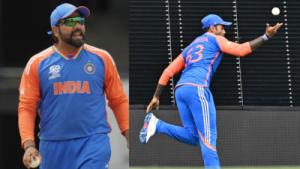Dengue fever, a mosquito-borne viral infection primarily transmitted by the Aedes aegypti mosquito, poses a significant public health challenge, particularly in India, which accounts for a substantial portion of the world's 100–400 million annual infections. With the infection typically peaking during monsoon season, the imminent completion of Phase 3 trials for India's first dengue vaccine offers a beacon of hope.

Dengue is characterized by high fever, severe headaches, joint and muscle pain. In severe cases, a dangerous drop in blood platelet count can occur, leading to bleeding, organ failure, and potentially death. Children and the elderly are particularly vulnerable to the most severe outcomes of this disease.
Developing a safe and effective dengue vaccine has been a long-standing challenge for scientists. The complexity arises from the existence of four distinct dengue virus serotypes. An effective vaccine must provide protection against all four to be considered successful. Previous vaccine efforts in other countries have yielded inconsistent results and limited widespread adoption.
The Serum Institute of India (SII) is at the forefront of developing India’s first dengue vaccine, TetraVax-DV. This vaccine is engineered to provide protection against all four dengue virus types. Utilizing a weakened form of the virus, similar to other vaccines, TetraVax-DV aims to stimulate the body's immune system to effectively combat dengue infection without causing the disease itself.
Vaccine development follows a rigorous testing process consisting of several phases:
Phase 3 is a critical stage, demonstrating the vaccine's ability to prevent dengue on a population-wide scale.
Phase 3 trials for India's dengue vaccine commenced in 2023, spanning over 20 locations across the country, encompassing both urban and rural settings. The trial aims to include over 10,000 volunteers, representing a diverse demographic of children and adults. Enrollment is nearing completion, with initial results indicating positive outcomes.

India faces a significant burden of dengue cases, placing strain on healthcare resources and causing considerable distress to families. A safe and effective vaccine has the potential to:
While the development of a vaccine is a crucial step, preventive measures remain essential. These include personal protection against mosquito bites (using repellents and wearing protective clothing), eliminating mosquito breeding grounds by covering drains and preventing water accumulation in open containers.
The Indian Council of Medical Research (ICMR) and Panacea Biotec.
Newer articles
Older articles
 Black Caps Set for Blockbuster Home Summer Against Cricket Giants
Black Caps Set for Blockbuster Home Summer Against Cricket Giants
 Gujarat Cricket Association Gears Up to Launch T20 League in 2025-26 Season
Gujarat Cricket Association Gears Up to Launch T20 League in 2025-26 Season
 Smith Aims for Second Test Return After Unique Baseball Cage Recovery
Smith Aims for Second Test Return After Unique Baseball Cage Recovery
 Sharma Reveals Heart-Stopping Moment of Yadav's Game-Changing Catch in T20 World Cup
Sharma Reveals Heart-Stopping Moment of Yadav's Game-Changing Catch in T20 World Cup
 Najmul Hossain Shanto Resigns as Bangladesh Test Captain After Sri Lanka Defeat
Najmul Hossain Shanto Resigns as Bangladesh Test Captain After Sri Lanka Defeat
 Daren Sammy Fined, Receives Demerit Point for Umpire Criticism After Test Match Controversy
Daren Sammy Fined, Receives Demerit Point for Umpire Criticism After Test Match Controversy
 Ex-India Star Engineer Slams ECB's Pataudi Trophy Renaming, Questions Anderson-Tendulkar Choice
Ex-India Star Engineer Slams ECB's Pataudi Trophy Renaming, Questions Anderson-Tendulkar Choice
 Man City Title Stripping: Unprecedented Chaos Looms for Premier League Amid Financial Allegations
Man City Title Stripping: Unprecedented Chaos Looms for Premier League Amid Financial Allegations
 Chess Grandmaster Anish Giri Defends Hans Niemann, Cites Lack of Evidence in Cheating Scandal
Chess Grandmaster Anish Giri Defends Hans Niemann, Cites Lack of Evidence in Cheating Scandal
 Jin's Solo Concert in Korea: A Reunion with ARMY, Surprise Guests, and Electrifying Performances
Jin's Solo Concert in Korea: A Reunion with ARMY, Surprise Guests, and Electrifying Performances